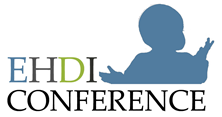| Abstract Information: |
| Title: |
Service Model for Culturally Deaf Families Choosing Spoken Language |
| Primary Track: |
6-Family Issues
|
| Keyword(s): |
Deaf Families, Service Model, Language |
Abstract: |
A team of therapists describe a service model which has been developed to serve an increasing number of culturally Deaf families that are choosing to pursue auditory-verbal therapy following cochlear implantation of their young, deaf children. Data will be presented documenting a trend toward increasing cochlear implantation for culturally Deaf families and examining the decision-making process and priorities of Deaf families who select spoken language options. The native language for these children and their families is American Sign Language, and the transition to spoken language is complex. The unique challenges for this population will be described, as well as the need for such Deaf families to have the same continuum of service options as hearing families. The proposed service model has evolved from practice, and case studies of several Deaf families will be presented. This family-centered approach to intervention effectively supports the child’s development of spoken language, while complimenting the strong foundation of language and learning provided by the Deaf parents. Discussion topics include re-evaluating philosophy and practice, framing issues of language modality, communication access, and “first language.” Specific strategies for practice will be presented including adapting the parent education component of Auditory-Verbal therapy, facilitating use of spoken language in a Deaf home environment, and collaboration with early childhood and community settings to improve outcomes in areas of spoken language as a path to supporting pre-literacy and socialization. There will be opportunities for participants to comment on the model and add their own strategies for working with Deaf families at the end of the session. |
| Presentation(s): |
Not Available
|
| Handouts: |
Not Available
|
|

